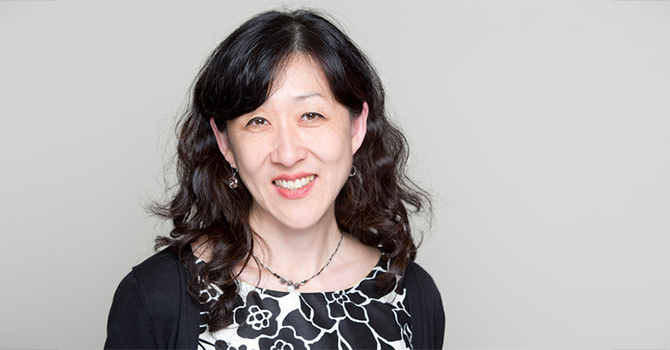For much of my life, I’ve been trying to reimagine the answers to the questions, Who is God? and How do we experience God in our lives?
As I reflect on this, I think about the God to whom I was introduced as a child. I attended church from a young age -- it was the thing to do for an immigrant from Korea. Many immigrants without families in Canada, where I grew up, resorted to the church as a place to celebrate birthdays, Christmas, anniversaries and other special occasions. The immigrant church was like a familiar home where we were able to eat together and share our love for the food of our motherland; we ate kimchi and enjoyed the pervasive garlicky odor of fermented spiced cabbage that we were used to hiding from the outside world.
The church was also a place to learn the Korean language and culture and make friends. It served as a social services agency as it helped people find employment or get advice on how to start small businesses. We went there for information about everything from where to live to student tutoring to how to pray to God.
The church gave Korean newcomers a place of protection and safety from the harsh realities of immigration, racism and xenophobia.
As a child, I grew to love the people at church. It was a place to see people who were like me. At school, I remained an oddity, teased ceaselessly for my unfamiliar looks and conduct. It was because of this that the Korean church became my place of refuge and acceptance.
However, with all the goodness, it wasn’t free of the sins of the world. Although I found refuge there, I also experienced sexism within the Korean church. It was clear to me at a young age that the women’s place was in the kitchen and that only men were leaders or ministers.
Gender roles within a patriarchal Asian culture and church setting made me feel uncomfortable as a youth struggling to discern God’s calling for my life. I felt unworthy, challenged by patriarchal norms, and I was told to be silent if I raised questions about it.
Now, as an ordained minister in the Presbyterian Church (U.S.A.), I am left wondering, how can today’s church continue to grow and nurture its members while also fighting against social injustice? As I seek hope for the future of the church, I am drawn to the Spirit and its movement in the church, community and society.
The Spirit filled the upper room at Pentecost. The entire room was filled -- and all the people were filled -- with the Holy Spirit. The work of the church is to build community, welcome the stranger, love our neighbors, and break down walls of oppression and injustice.
Some folks may argue that we just need to concentrate on filial piety. As long as I am OK, then everything is OK.
However, God is concerned about the context in which we find ourselves. If our context is oppressive, God is concerned. If God wasn’t concerned, then why did God bring the Israelites out of slavery in Egypt? God brought them out because God is concerned about oppression and seeks liberation from it. Moses said, “Let my people go” -- a challenge that echoes today.
Our churches should be concerned about the context in which they find themselves. It’s not enough to serve the congregation, as my childhood church did in nourishing us with familiar foods and worship and a safe place for our people to gather in community. Churches should be concerned about sexism, racism, homophobia, Islamophobia, and all the other “phobias” that prevent us from welcoming and offering full inclusion into the body of Christ. We need to work toward an intercultural ministry -- an intercultural ministry that actively welcomes the other, engages in social justice and builds the reign of God.
This isn’t easy; there’s always pressure to stay silent, to go along. In times of desperation, we cry out that we cannot do it alone. This is where we need the Spirit to empower us and guide us. It is the Spirit that will help us build stronger churches. I am left to cling to the hope that it is the Spirit-filled church that does the work of God to bring wholeness to our lives and break down the oppressive barriers that continue to subjugate people.
The Holy Spirit has always been the mover and shaker of ideas and action. The different ways in which we imagine the Holy Spirit can challenge some of our assumptions in Christianity and provide a liberating understanding of the Spirit that allows us to work for social justice.
The Spirit challenges the status quo, such as white, hetero-patriarchal values. The work of the Holy Spirit that ceaselessly stirs us will also motivate us to work toward new kinships with God that are sustainable, just and whole. It will fill our churches so that we can welcome everyone to the table, break bread -- and even eat garlicky kimchi together.


















